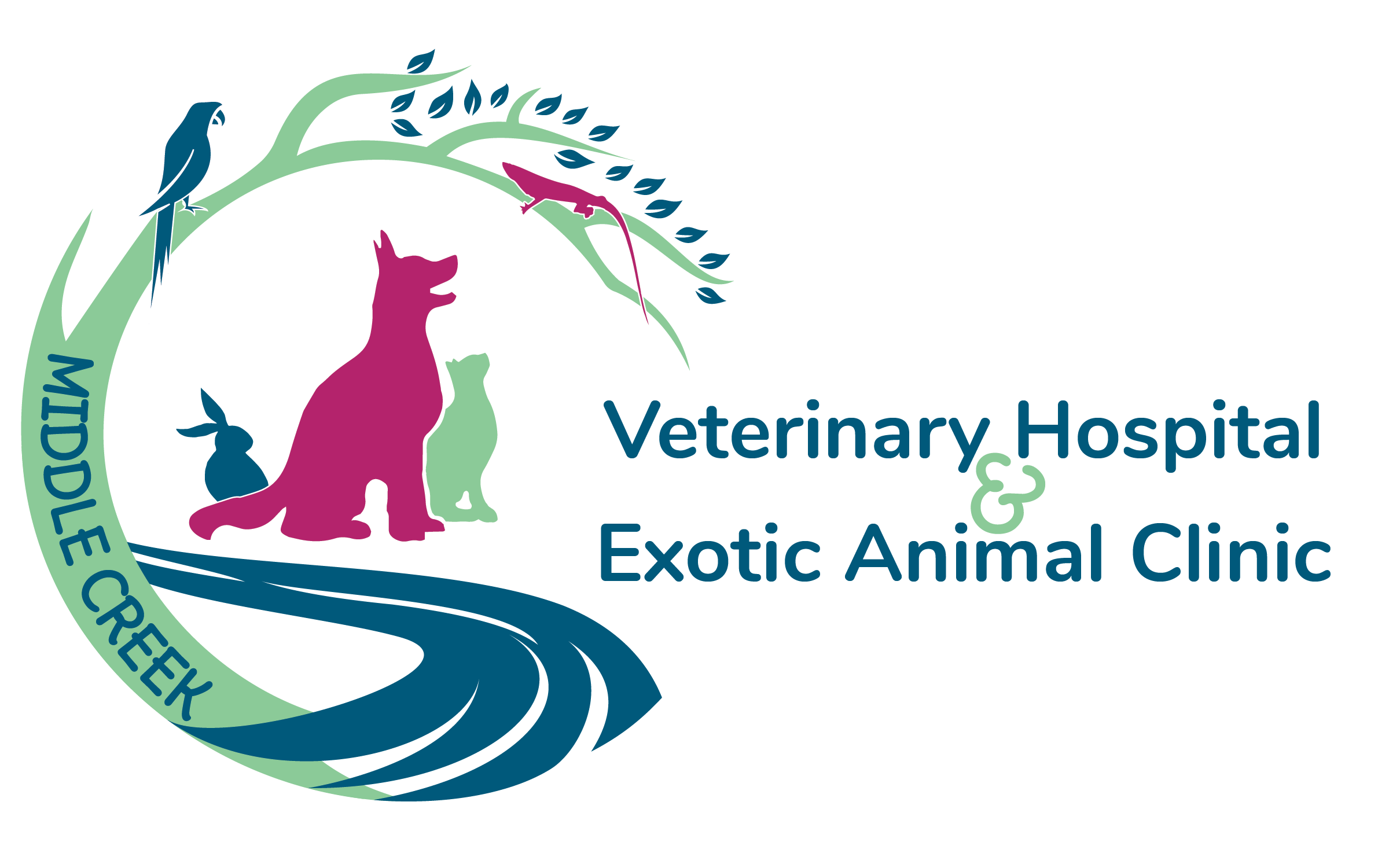About
Dental Care
At Middle Creek Veterinary Hospital & Exotic Animal Clinic, we can’t possibly emphasize the importance of pet dental care enough. Just like humans, our beloved companions can suffer from painful dental issues. According to the American Veterinary Dental Society, 80% of dogs and 70% of cats develop dental disease by age three. Small mammals and some reptiles also have teeth and need care! Dental disease is the most commonly diagnosed health problem in pets.
We are committed to doing our part so that you can better provide your pet with a quality life. With prophylactic veterinary dental cleanings, our veterinarian’s informative guidance, and your willingness to practice home dental care for your pets, we can decrease the chances of your pet developing dental pain and disease.
How Do You Know If Your Pet Needs Dental Care?
They say that a pound of prevention is worth an ounce of cure. Even if your pet is still young or seems healthy, they still need dental care. Additionally, pets are excellent at hiding their ailments, and it can be difficult to tell if they are experiencing pain. While this list is not exhaustive, and some ailments may be vague, please schedule an appointment with us right away if your pet has or is showing any of the following:
- Yellow or brown tartar buildup on their teeth
- Loose teeth
- Red, swollen, or bleeding gums
- Bad breath
- Excessive drooling
- Changes in eating or chewing habits
- Pawing at the face
- Depression
Why is Pet Dental Care Necessary?
Oral hygiene is just as crucial for your pets as it is for you. Can you imagine if you didn’t brush your teeth for a whole year straight? There would probably be some questionable build-up between your teeth, amongst other things. Because pets can’t floss or brush their own teeth, food debris (and bacteria) tend to accumulate around the teeth. If left alone, this material can destroy the surrounding soft tissue and bone.
Tooth decay can result in tooth loss, irreversible periodontal disease, chronic mouth pain, and costly oral surgeries. For dogs and cats, the gold standard is for their humans to brush their teeth. Dental treats like “Greenies” can help, but it’s no substitute for proper oral care. Home dental care for exotic pets differs slightly depending on the species, but we can help with that, too.
Even if your pet isn’t showing symptoms, we strongly recommend bringing them in at least once a year for an evaluation. Small exotic mammals should be seen twice a year. Some animals will need annual or biannual professional dental cleaning and treatment for maintenance. By prioritizing your pet’s dental health, we can help prevent disease. If at any point there is an oral ailment, we can detect and treat them early on – before their mouth hurts.
How Does Poor Oral Health Affect Your Pet?
Dental disease doesn’t just make your pet’s breath stink! The same bacteria that causes the bad smell when an animal has dental disease can poison the bloodstream, causing severe infections in their vital organs. In turn, this can severely damage your pet’s kidneys, liver, lungs, and heart. Without prompt detection and treatment, these internal infections can be fatal.
When you bring your pet in to discuss dental care, we don’t just check the teeth. Our veterinarian will perform a thorough physical examination that ideally includes lab work to check your pet’s systemic health. This will help us determine if your pet has any infections in the mouth or throughout the body. If your pet shows signs of dental disease, we’ll walk you through what treatment will look like.
Our Pet Dental Services
Our team at Middle Creek Veterinary Hospital is not only equipped to diagnose and treat dental issues, but we’re also here to guide you on properly maintaining your pet’s oral hygiene. Aside from showing you effective brushing techniques, we’ll also recommend foods and treats that help fight tartar buildup and plaque on your pet’s teeth.
Your pet’s dental health is our priority, and we’re here to ensure their well-being and happiness. Reach out to us today to give your furry (or not-so-furry) friend the best dental care they deserve!
